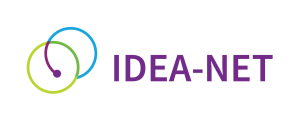Babes-Bolyai University – Cluj-Napoca, Romania
Over the past two years, the office has implemented the following activities related to equal access/inclusion/diversity:
- Support and counselling for students and university staff,
- Lectures, workshops, seminars for students, faculty and non-teaching staff,
- Training courses for peer educators,
- Public promotion (e.g., production of media content such as podcasts),
- Improving physical accessibility,
- Improving digital accessibility.
The major influences the office has are accessibility of materials for blind students, events to promote inclusion and disability, and volunteer recruitment.
The programme also uses innovative practises/tools. They were the first university to implement in CARTA that people with disabilities receive educational support from the university.
IDEA-net: Expanding the network of Inclusion, Diversity, Equity and Access (IDEA) practitioners in higher education through institutional capacity building
Project ref: 2022-1-NL01-KA220-HED-000089789

This project has been funded with support from the European Commission. This website reflects the views only of the authors, and the Commission cannot be held responsible for any use which may be made of the information contained therein.

